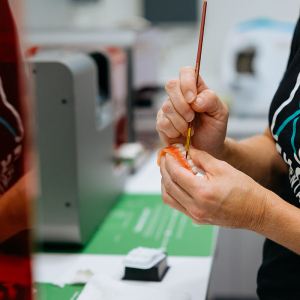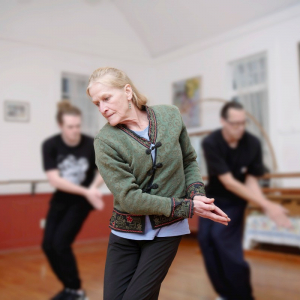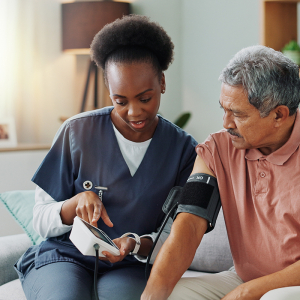Functional Fitness: Fighting Back Against Parkinson’s

Rock Steady Boxing creates fitness classes for any stage of Parkinson’s disease, aiming to improve boxer’s quality of life – with no-contact boxing, of course.
Parkinson’s is a brain disorder that can cause uncontrollable movement, like stiffness, shaking and trouble with coordination and balance. Usually symptoms worsen over time, to the point those diagnosed may have trouble walking and speaking. However, Parkinson’s affects each person differently, with different rates of progression.
Gabriele Campbell is a personal trainer and owns Focused Functional Fitness in Rogers. She started offering RSB classes in 2018.
“Rock Steady Boxing is not your typical exercise class. A class is about 70 to 80 minutes long because we work on symptoms such as dexterity, freezing and slow movement. The warm-up itself is 15-20 minutes long,” she said.
Rock Steady Boxing was founded in 2006 by Scott Newman and Vince Perez after Newman was diagnosed with early-onset Parkinson’s. The Indiana exercise progam now has affiliates across the U.S., with 11 programs here in Arkansas.
Tuhin Virmani, director of the Movement Disorders Program at UAMS, has recommended Rock Steady to several of his patients.
“Multi-fold exercise in Parkinson’s is really important. Exercise helps not only with the motor function overall, but that activity level and repeatedly doing the same exercises over and over again gets those automatic pathways working and firing as best as possible,” Virmani said. “So it helps immediately with function, but also long-term, there’s data to suggest that it might help slow down the progression of the disease.”
At Rock Steady, the progression of Parkinson’s is taking quite the hit.
“The forced intensity exercises reduce tremors. We actually have one member that said, ‘Wow. I don’t shake much anymore,’” Campbell said.

Exercises in RSB classes aren’t limited to punching bags. Campbell’s classes incorporate voice exercises to help keep boxers’ voices from going quiet.
Mary Olson, RSB coach at the Little Rock Athletic Club, incorporates swallowing techniques to help prevent choking.
“The structure of our class is that every day there is speed bag work and heavy bag work. In addition to that, most days there’s also a cardio component. Then we add in core work, strength work, balance work, mobility work,” Olson said. “What makes me proud is when the regular members [of LRAC] walk past our class, they don’t know it’s a class for Parkinson’s.”
While the forced intensity workouts provided by RSB can be life changing, the social aspect seems to help boxers with their diagnoses as well.
“You have to have a Parkinson’s diagnosis to be in the class. For that one hour, our boxers aren’t different from anyone else except the coach in the room,” Olson said. “And every other hour of the day, they’re different because they’ve received this diagnosis. When I meet a potential boxer, their eyes are down… they’re very defeated after receiving this diagnosis. But as they come in the class, they meet the other boxers, they see for that hour they’re going to work very hard so they get some of that frustration of this diagnosis out.”

Olson’s original RSB class has been going strong for four years, and she has since added more class times to her schedule.
“I thought when I first asked if I could be certified in this class that I was doing it for the participants, but it has been incredibly fulfilling for me and something I will continue to do as long as I can,” Olson said.
While forced intensity or high intensity workouts seem to provide the best results in Parkinson’s patients, Virmani says any movement is better than none.
According to the National Institues of Health, even low intensity movement like those performed during tai chi have shown potential improvements. Tai chi helps with lower extremity muscle strength, cognitive problems and balance – all things Parkinson’s seems to target.
Tai chi classes can be found anywhere from martial arts gyms to yoga studios.
No matter the intensity, it’s important to get up and moving on the path to knock out Parkinson’s.








